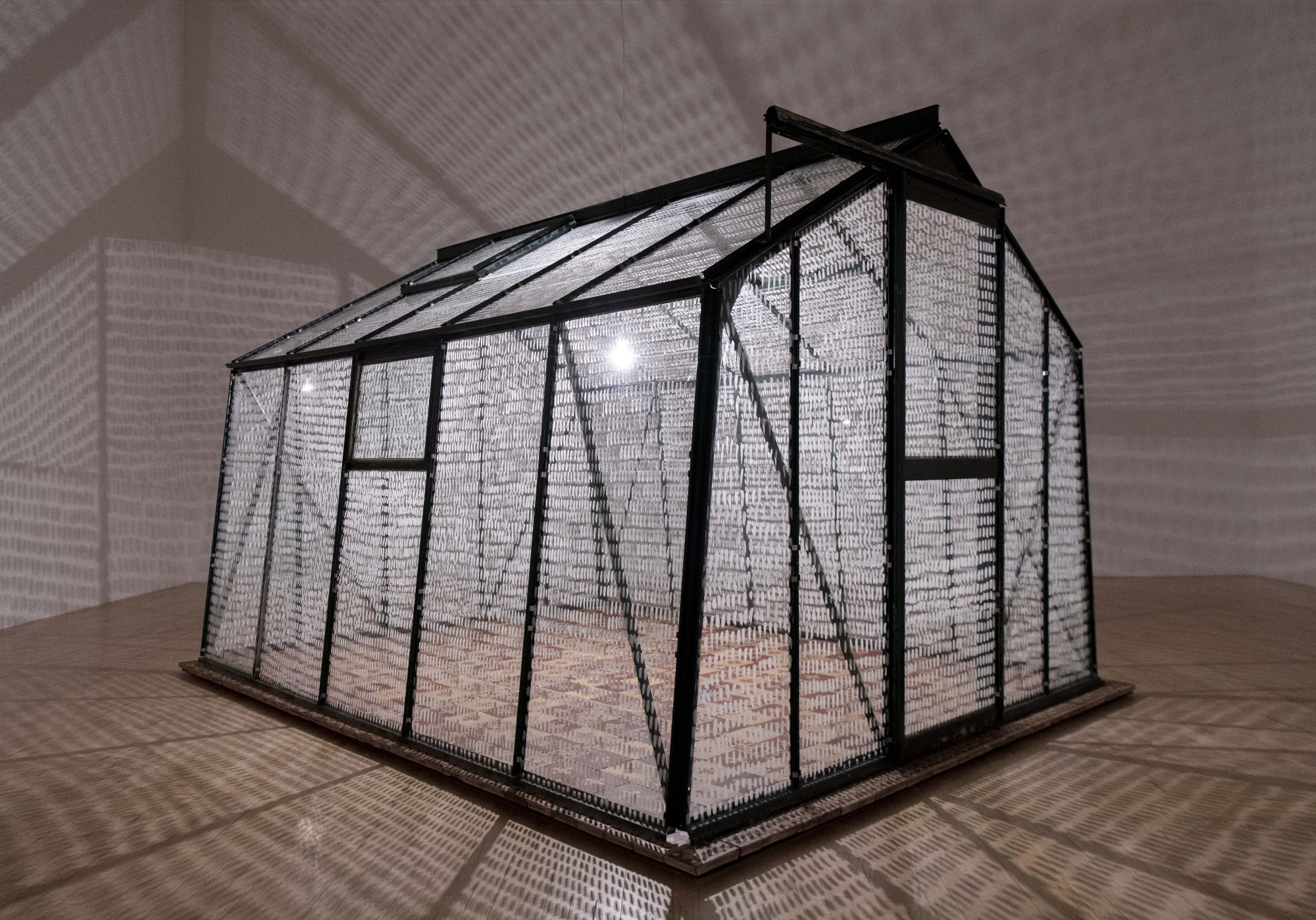Cornelia Parker
19 May - 16 Oct 2022
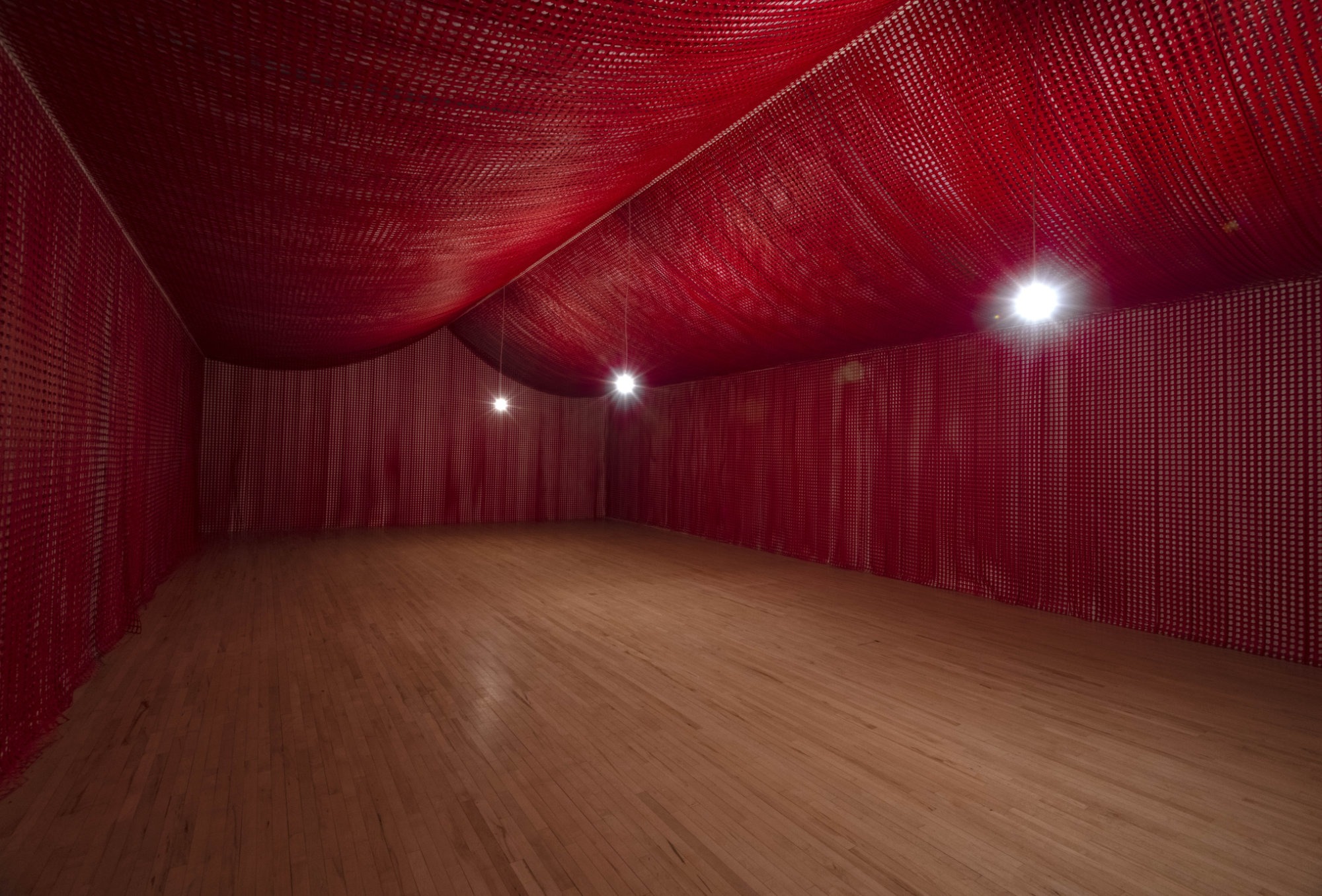
Cornelia Parker, War Room, installation view at Tate Britain, London, 2022 © Tate Photography Oli Cowling
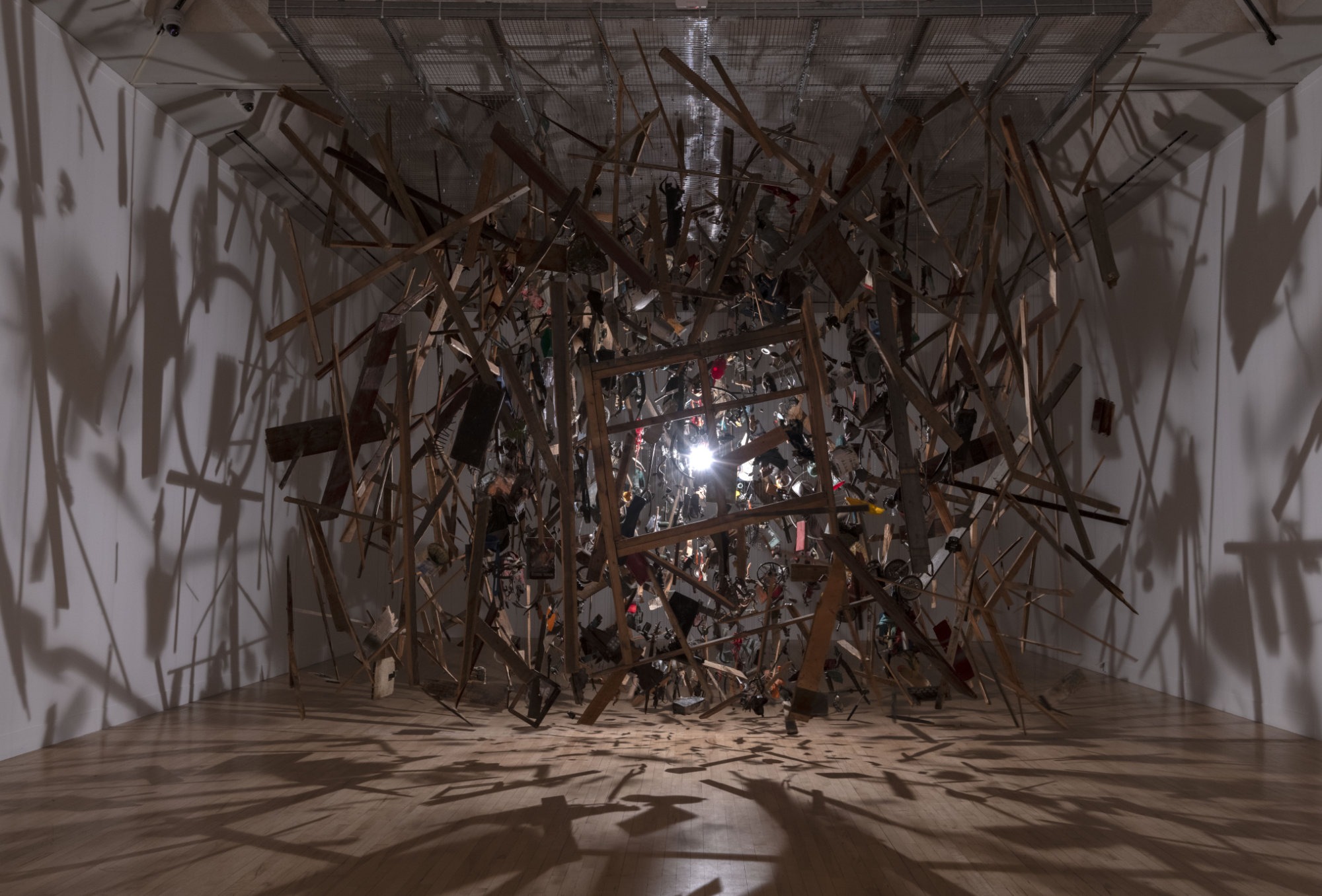
Cornelia Parker, Cold Dark Matter, installation view at Tate Britain, London, 2022 © Tate Photography Oli Cowling
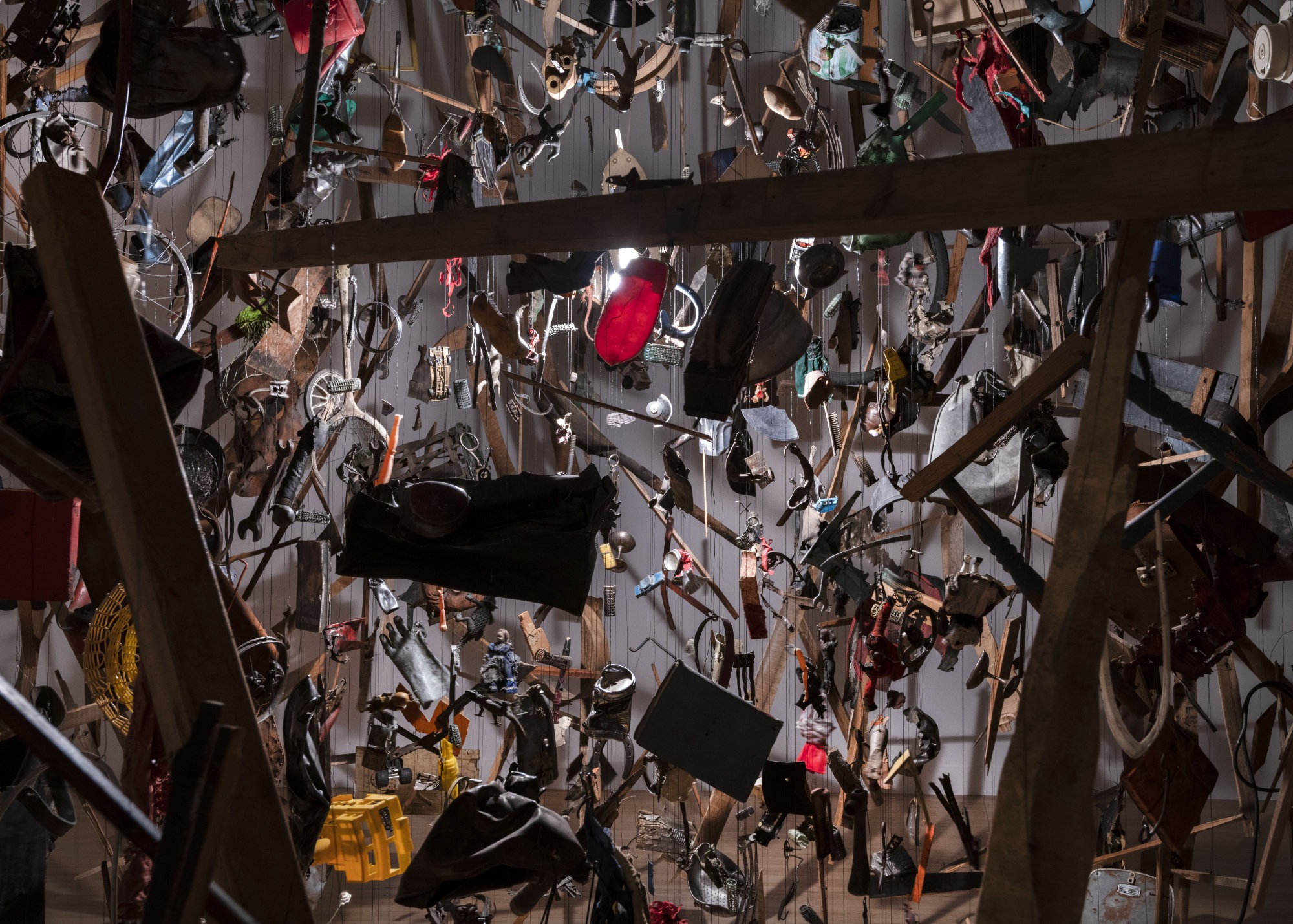
Cornelia Parker, Cold Dark Matter, installation view at Tate Britain, London, 2022 © Tate Photography Oli Cowling
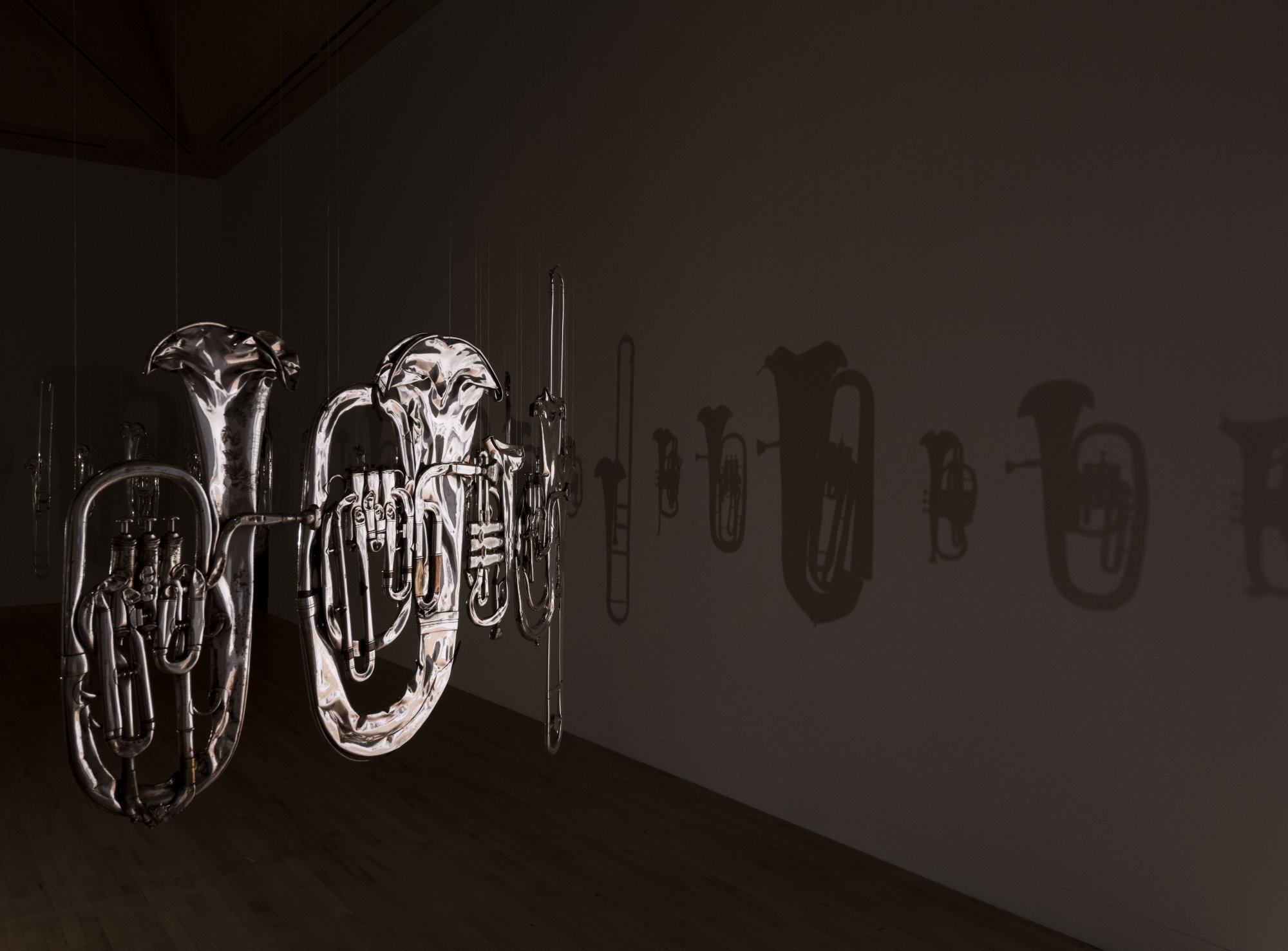
Cornelia Parker, Perpetual Canon, installation view at Tate Britain, London, 2022 © Tate Photography Oli Cowling
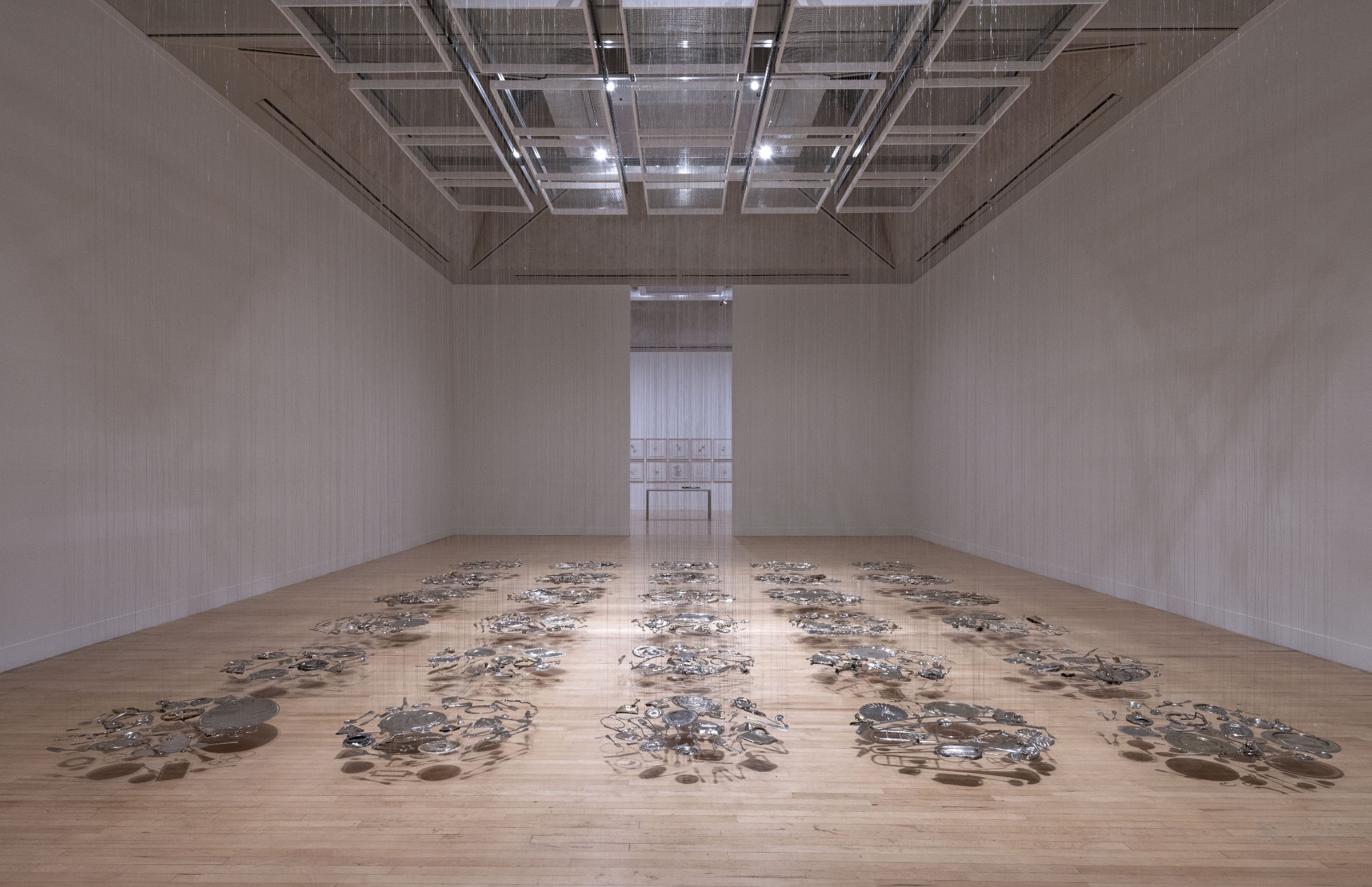
Cornelia Parker, Thirty Pieces of Silver, installation view at Tate Britain, London, 2022 © Tate Photography Oli Cowling
Tate Britain presents the first major survey of Cornelia Parker’s works held in London. One of Britain’s leading contemporary artists, Parker is responsible for some of the most unique and unforgettable artworks of the past thirty years. Driven by curiosity, Parker transforms seemingly everyday objects into extraordinary works of art. Through visual allusions and metaphors, Parker’s works explore contemporary issues such as violence, human rights and environmental disaster. The exhibition brings together over 90 artworks spanning immersive installations, sculptures, film, photography and drawing, to celebrate the breadth of Parker’s highly experimental and wide-ranging practice to date.
Cornelia Parker first came to prominence in the late 1980s creating large-scale suspended installations and sculptures which have captivated audiences around the world ever since. This exhibition includes several of her best-known early works including Thirty Pieces of Silver 1988-89, an installation of flattened silver objects including teapots, candle sticks and dinnerware collected from charity shops and car boot sales; and Cold Dark Matter: An Exploded View 1991, a garden shed frozen at the moment of explosion, its fragments surrounding a single lightbulb. Examples of Parker’s more recent room-sized works are included, such as War Room 2015, created from the reams of perforated red paper negatives left over from the production of British Legion remembrance poppies, and Magna Carta (An Embroidery) 2015, a thirteen-metre long collectively hand-sewn embroidery of a Wikipedia page, which involved over 200 volunteers including public figures, human rights lawyers, politicians and prisoners.
Parker has created two new works especially for the exhibition, including the new six-minute video FLAG 2022, which shows the creation of a Union Jack in reverse against the backdrop of the hymn Jerusalem. The exhibition culminates with Island 2022, Parker’s major new sculptural installation comprising a greenhouse painted in white chalk from the cliffs of Dover. The glass frame stands atop Victorian encaustic floor tiles salvaged from the Palace of Westminster, and is illuminated by a suspended light bulb, pulsating slowly, casting dramatic shadows around the gallery.
The exhibition spotlights Parker’s hugely inventive works on paper, including drawings, photographs and prints, as well as her more intimate sculptural objects. Highlights include the Avoided Object 1999 photographs of clouds, taken on a camera once owned by an Auschwitz commandant; and the inkblot Pornographic Drawings 1995-2006, created from dissolved video tapes confiscated by HM Customs and Excise.
Politics is a key theme in many of the artist’s works, and in 2017 Parker was the first woman to be appointed official artist for the General Election. In this role, she observed the election campaign leading up to the 8 June vote, meeting with politicians, campaigners and voters and producing artworks in response. Several films made during this period are shown in a cinema room within the exhibition, including Left Right & Centre 2018, filmed by a drone at night in the House of Commons; and Election Abstract 2018, a documentation of Parker’s observations during the campaign, posted on her Instagram account. Other film works include Made in Bethlehem 2012-13, depicting a Palestinian father and son as they weave thousands of barbed crowns ahead of the influx of Easter pilgrims, and Chomskian Abstract 2007, an interview with the American social critic and philosopher Noam Chomsky about the entwined relationship between ecological disaster and capitalism.
Several of Parker’s artworks including sculptures, textile-based works and video, spill out beyond the confines of the exhibition and into Tate Britain’s collection galleries, presented alongside the historical works they reference. Room for Margins 1998, an installation of the stained canvas linings and tacking edges of Turner paintings (removed by Tate conservators after a flood in 1928) are hung in the dedicated Turner galleries at Tate Britain. The Distance (A Kiss with String Attached), 2003, Parker’s provocative dialogue with Rodin’s famous Kiss, greets visitors on arrival in the Manton Foyer.
Cornelia Parker is curated by Andrea Schlieker, Director of Exhibitions & Displays, Tate Britain, with Nathan Ladd, Assistant Curator, Contemporary British Art, Tate Britain. The exhibition is accompanied by a major new monograph featuring an extensive interview between Schlieker and Parker, discussing her thirty-year plus career. In addition, the book features contributions by collaborators from throughout Parker’s career, including Kostya Novoselov, Nobel Laureat for physics; Alan Rusbridger, editor of Prospect and former editor of The Guardian; and Jimmy Wales, founder of Wikipedia; as well as texts by leading art historians and writers including Margaret Iverson, David Campany, Jo Applin and Marina Warner.
Cornelia Parker is supported by the Cornelia Parker Exhibition Supporters Circle, with additional support from Tate Americas Foundation, Tate International Council, Tate Patrons and Tate Members.
Cornelia Parker (b. 1956, Cheshire) lives and works in London. Over the last three decades, she has presented numerous major commissions and solo exhibitions nationally and internationally, including at the Museum of Contemporary Art Australia, Sydney (2019); Westminster Hall, Palace of Westminster (2017); Metropolitan Museum of Art, New York (2016), The Whitworth, the University of Manchester (2015), British Library, London (2015), BALTIC Centre for Contemporary Art, Gateshead (2010), Museo de Arte de Lima, Peru (2008), Ikon Gallery, Birmingham (2007) and the Modern Art Museum of Fort Worth, Texas (2006).
Parker was elected to the Royal Academy of Arts, London, and made an OBE in 2010. She was elected the Apollo Awards Artist of the Year in 2016, and the following year, awarded an honorary doctorate from the University of Manchester. In 2017, she was appointed as the first female Election Artist for the United Kingdom General Election. She was made an Honorary Fellow of Trinity Hall, Cambridge in 2021. Her works are held in public and private collections around the word including the Institute of Contemporary Art, Boston; Fundación “la Caixa”, Barcelona and the Museum of Modern Art, New York.
Cornelia Parker first came to prominence in the late 1980s creating large-scale suspended installations and sculptures which have captivated audiences around the world ever since. This exhibition includes several of her best-known early works including Thirty Pieces of Silver 1988-89, an installation of flattened silver objects including teapots, candle sticks and dinnerware collected from charity shops and car boot sales; and Cold Dark Matter: An Exploded View 1991, a garden shed frozen at the moment of explosion, its fragments surrounding a single lightbulb. Examples of Parker’s more recent room-sized works are included, such as War Room 2015, created from the reams of perforated red paper negatives left over from the production of British Legion remembrance poppies, and Magna Carta (An Embroidery) 2015, a thirteen-metre long collectively hand-sewn embroidery of a Wikipedia page, which involved over 200 volunteers including public figures, human rights lawyers, politicians and prisoners.
Parker has created two new works especially for the exhibition, including the new six-minute video FLAG 2022, which shows the creation of a Union Jack in reverse against the backdrop of the hymn Jerusalem. The exhibition culminates with Island 2022, Parker’s major new sculptural installation comprising a greenhouse painted in white chalk from the cliffs of Dover. The glass frame stands atop Victorian encaustic floor tiles salvaged from the Palace of Westminster, and is illuminated by a suspended light bulb, pulsating slowly, casting dramatic shadows around the gallery.
The exhibition spotlights Parker’s hugely inventive works on paper, including drawings, photographs and prints, as well as her more intimate sculptural objects. Highlights include the Avoided Object 1999 photographs of clouds, taken on a camera once owned by an Auschwitz commandant; and the inkblot Pornographic Drawings 1995-2006, created from dissolved video tapes confiscated by HM Customs and Excise.
Politics is a key theme in many of the artist’s works, and in 2017 Parker was the first woman to be appointed official artist for the General Election. In this role, she observed the election campaign leading up to the 8 June vote, meeting with politicians, campaigners and voters and producing artworks in response. Several films made during this period are shown in a cinema room within the exhibition, including Left Right & Centre 2018, filmed by a drone at night in the House of Commons; and Election Abstract 2018, a documentation of Parker’s observations during the campaign, posted on her Instagram account. Other film works include Made in Bethlehem 2012-13, depicting a Palestinian father and son as they weave thousands of barbed crowns ahead of the influx of Easter pilgrims, and Chomskian Abstract 2007, an interview with the American social critic and philosopher Noam Chomsky about the entwined relationship between ecological disaster and capitalism.
Several of Parker’s artworks including sculptures, textile-based works and video, spill out beyond the confines of the exhibition and into Tate Britain’s collection galleries, presented alongside the historical works they reference. Room for Margins 1998, an installation of the stained canvas linings and tacking edges of Turner paintings (removed by Tate conservators after a flood in 1928) are hung in the dedicated Turner galleries at Tate Britain. The Distance (A Kiss with String Attached), 2003, Parker’s provocative dialogue with Rodin’s famous Kiss, greets visitors on arrival in the Manton Foyer.
Cornelia Parker is curated by Andrea Schlieker, Director of Exhibitions & Displays, Tate Britain, with Nathan Ladd, Assistant Curator, Contemporary British Art, Tate Britain. The exhibition is accompanied by a major new monograph featuring an extensive interview between Schlieker and Parker, discussing her thirty-year plus career. In addition, the book features contributions by collaborators from throughout Parker’s career, including Kostya Novoselov, Nobel Laureat for physics; Alan Rusbridger, editor of Prospect and former editor of The Guardian; and Jimmy Wales, founder of Wikipedia; as well as texts by leading art historians and writers including Margaret Iverson, David Campany, Jo Applin and Marina Warner.
Cornelia Parker is supported by the Cornelia Parker Exhibition Supporters Circle, with additional support from Tate Americas Foundation, Tate International Council, Tate Patrons and Tate Members.
Cornelia Parker (b. 1956, Cheshire) lives and works in London. Over the last three decades, she has presented numerous major commissions and solo exhibitions nationally and internationally, including at the Museum of Contemporary Art Australia, Sydney (2019); Westminster Hall, Palace of Westminster (2017); Metropolitan Museum of Art, New York (2016), The Whitworth, the University of Manchester (2015), British Library, London (2015), BALTIC Centre for Contemporary Art, Gateshead (2010), Museo de Arte de Lima, Peru (2008), Ikon Gallery, Birmingham (2007) and the Modern Art Museum of Fort Worth, Texas (2006).
Parker was elected to the Royal Academy of Arts, London, and made an OBE in 2010. She was elected the Apollo Awards Artist of the Year in 2016, and the following year, awarded an honorary doctorate from the University of Manchester. In 2017, she was appointed as the first female Election Artist for the United Kingdom General Election. She was made an Honorary Fellow of Trinity Hall, Cambridge in 2021. Her works are held in public and private collections around the word including the Institute of Contemporary Art, Boston; Fundación “la Caixa”, Barcelona and the Museum of Modern Art, New York.

